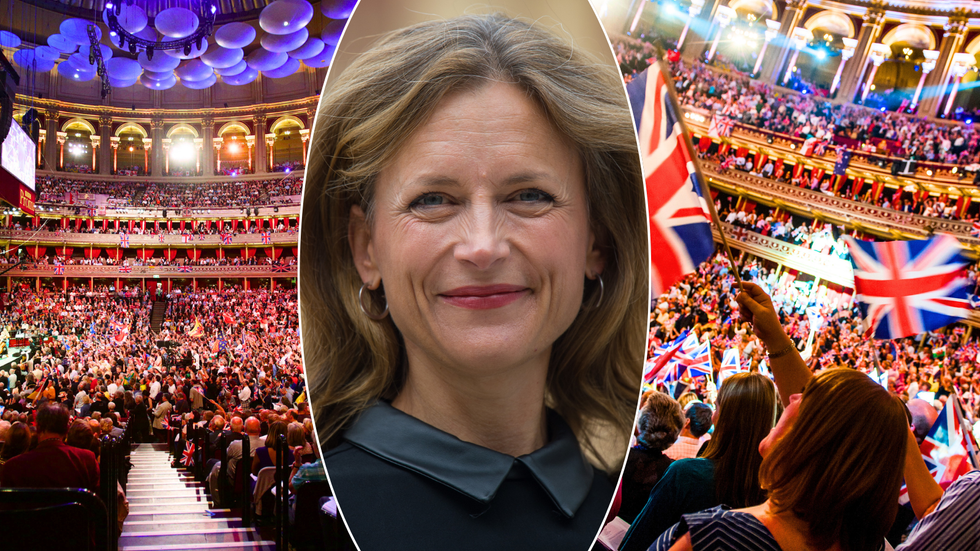
Rule, Britannia! labelled ‘incredibly problematic’ by BBC Proms presenter in latest woke row over British classic
Rule, Britannia! and Land of Hope and Glory have been blasted as “incredibly problematic” by a BBC Proms host in the latest controversy to hit the classic songs.
Katie Derham, the BBC Proms presenter and one-time Strictly contestant, claimed the pair of patriotic anthems “will delight and enrage large swathes of the population in equal measure” – but admitted they were “classical bangers”.
Derham, 54, said she understood why some people would not be happy singing along with the melodic duo – pointing to their “of their time” lyrics.
Writing in the Radio Times, the presenter said: “Accompanied by the frantic waving of flags and a sprinkling of inflatable bananas, these songs will delight and enrage large swathes of the population in equal measure, but have become – undoubtedly – de facto national anthems.
“These singalong classical bangers, like Land of Hope and Glory and Rule, Britannia! were written long ago – the former in 1901 (with lyrics added in 1902) and the latter way back in 1740.
“Both have lyrics that are of their time, and, yes, also incredibly problematic.”
The “bangers” have come under fire before – Sheku Kanneh-Mason, who performed at Prince Harry and Meghan Markle‘s wedding, claimed some people “don’t realise how uncomfortable” Rule, Britannia! “can make a lot of people feel”.
But Derham has counselled calm over objections to the lyrics – she wrote how it was “very interesting to discover that the very modern preoccupations around the [Land of Hope and Glory] lyrics aren’t modern at all”.
MORE WOKE MADNESS:
National Trust membership figures drop amid furious backlash over ‘woke’ policiesNigel Farage claims he ‘won’t go to church anymore’ because it has ‘surrendered’ to the woke agenda
‘Woke people are intolerant and are behind cancel culture’ claims Mark Dolan
She continued: “In fact, the concerns were shared by its author and composer.
“The original lyrics had been rather bland, but under pressure from the publisher, and in a fit of patriotic fervour after Britain’s victory in the Boer War, [Arthur] Benson dashed off the verses that we know today… and then spent the rest of his life regretting them.”
But the BBC presenter has also said the song’s “memorable” melody upholds “a sense of universality”.
She wrote: “As the flags are waved at the Last Night of the Proms on Saturday September 14, you may well choose not to sing the words to Land of Hope and Glory – but remember that what you are witnessing is the unstoppable power of a really great tune.”
The songs have come under fire before – in 2020, when the BBC threatened to have the songs performed without lyrics at the Proms, the broadcaster was slated by none other than Boris Johnson, who said: “I do think this country is going through an orgy of national embarrassment about some of the things that other people around the world love most about us.
“People love our traditions and our history – with all its imperfections.”
And the lyrics to certain hymns sung at the Proms aren’t the only ones to have taken flak.
In 2020, the words to England rugby anthem Swing Low, Sweet Chariot, a song about one’s desire to be freed from slavery, was subject to long-running discussions at the RFU – which eventually decided it would continue with the tune.